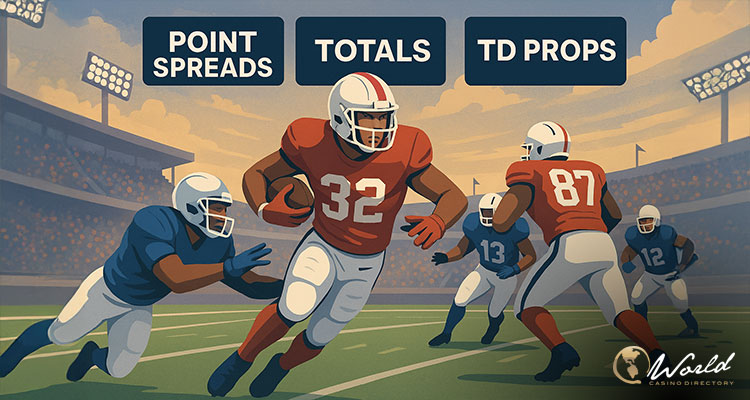Kalshi, the federally regulated prediction market exchange, is significantly expanding its football offerings. The platform, which has so far focused mainly on moneyline-style wagers, is introducing new betting categories that include point spreads, over/under totals, and player touchdown props. The announcement comes through self-certifications filed with the Commodity Futures Trading Commission (CFTC), which oversees Kalshi’s operations.
Until now, Kalshi’s football markets were limited to predicting the outright winner of a matchup. With the latest approval, its contracts will soon resemble some of the most common wagers at traditional sportsbooks. The CFTC filings show that the exchange has certified three new types of markets: FOOTBALLSPREAD, FOOTBALLTOTALS, and FOOTBALLTOUCHDOWN, according to Event Horizon.
For spreads, the template reads: “Will <team> win <game> by <above/below/between/exactly/at least> <count> points?” Totals, meanwhile, take the form: “Will <game> have <over/under> <count> points in <time period> of <game>?” This wording suggests Kalshi could eventually allow quarter-by-quarter or half-by-half totals.
Touchdown contracts are designed to let users speculate on individual players or teams scoring, such as: “Will <player/team> score in <first/last/any/count> touchdown(s) in <time_period> of <game>?” Importantly, passing touchdowns do not count toward these bets, and the rules specify that a player must take at least one snap for the contract to remain valid.
A Step Toward Sportsbook-Like Offerings
Adding spreads, totals, and props brings Kalshi’s exchange far closer to the sportsbook model. These bet types make up a large portion of revenue at industry leaders like DraftKings and FanDuel. They are also expected to boost Kalshi’s liquidity and volume, as spreads and totals are generally more popular than simple winner-picking.
“This is a natural progression in our offerings, and clearly there’s huge consumer demand,” Kalshi spokesperson Sara Slane said. CEO Tarek Mansour echoed that sentiment in a press release, stating, “Bringing these markets under CFTC oversight gives consumers the same level of protections as Wall Street traders and institutions. Kalshi is bringing more liquidity, efficiency, and price competition to markets on the $400 billion sports industry, and our traction so far is testament to that.”
The company also framed the launch as a challenge to the illegal gambling sector, noting that it aims to provide “a federally transparent, regulated, and supervised marketplace for sports trading” that competes with what it described as an $84 billion unregulated market.
Regulatory and Legal Challenges
The expansion comes at a time when Kalshi is facing heightened legal scrutiny. Although the CFTC has never blocked one of its self-certified sports markets, courts in several states are weighing its legitimacy. Earlier this month, a federal judge in Maryland sided against Kalshi, writing that “the courts and Congress have long recognized states’ authority to regulate gambling conducted within their borders.” Kalshi has since appealed the ruling, allowing it to continue operations in Maryland pending further review.
Meanwhile, multiple states, including California—where three Native American tribes have filed suit—are pursuing legal action against the company. Despite this, Kalshi maintains that its exchange is not a sportsbook in the traditional sense, since users trade contracts against one another rather than against “the house.”
The company’s unique federal regulatory framework means it is able to operate in states that have not legalized sports betting, such as Texas and California. That distinction has drawn both interest and opposition as Kalshi attempts to expand its presence nationally.
Potential for Parlays and Future Growth
Industry observers see these new markets as potentially paving the way for parlays—combined wagers on multiple outcomes—which are a cornerstone of sportsbook profitability. Kalshi has experimented with parlays on entertainment events like the Oscars and Grammys, and experts suggest sports parlays may follow if liquidity providers step in to support them.
For now, Kalshi’s immediate expansion is limited to football. The company confirmed that its new contracts will be available after the close of business on August 18, 2025, though it has not specified which markets will go live first. Currently, the platform already lists contracts for NFL preseason games, Week 1 matchups, and early college football contests.
Despite legal battles, Kalshi continues to attract investors and industry backing. The exchange recently secured $185 million in funding and claims more than $2 billion in sports-event contracts have been traded this year alone. With strong political connections—including board member Brian Quintenz, a nominee for CFTC chair—Kalshi appears determined to press forward in its effort to redefine the U.S. betting landscape.



